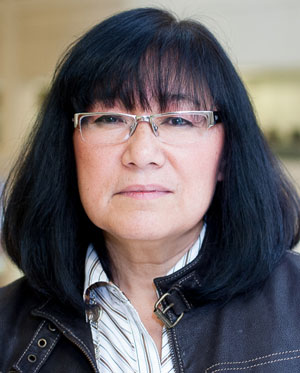After allocating more than $1.1 million to efforts to reform the legal clinic system in the Greater Toronto Area, Legal Aid Ontario has confirmed it’s withdrawing financial support for the project but remains open to changes on a piecemeal basis.

“We’ve indicated to the project that it is our intention to look at those transformational projects and initiatives that are currently being developed by GTA clinics and if we see a project or initiative that is transformative, that will advance client service and expand client service, then we will use the unspent funds from the GTA transformation project to support that endeavor,” says Vicki Moretti, LAO’s vice president for the greater Toronto region.
The comments follow news that a high-profile effort to merge Toronto-area clinics into a handful of organizations had fallen apart. Last week, Moretti confirmed LAO had withdrawn the funding to support those efforts. “In its current form, we will not be [continuing to fund the project],” she says.
“It became apparent that there was opposition by a majority of the clinics with regard to the models that were proposed by the vision report and because they were unable to gain consensus on the model, the project was no longer moving forward.
“We met with the co-leads of the project, and I think it was mutually agreed that the project had come to its natural end. So Legal Aid Ontario is providing early termination notice of the funding agreement.”
But Moretti notes LAO has heard that various clinics have been discussing ways to collaborate in order to expand client service. She says she expects to see proposals in writing later this summer once LAO finally terminates funding for the transformation project. In prior years, LAO provided the project with $647,000 in funding: $145,000 in April 2013, $102,000 in September 2013, and $400,000 in March 2014. On March 30, 2015, it allocated a further $500,000 that the project is now to return as unspent funds.
At the heart of the transformation project was a plan, released last September, to consolidate 16 clinics into five or six larger facilities. Proponents believed the consolidation would offer a number of advantages, including allowing for more front-line staff and providing a more equitable allocation of funding across the region.
While there were initial suggestions the plan had significant support, by the time the clinics had submitted their official responses earlier this year, only three organizations —Flemingdon Community Legal Services (which was the lead clinic on the transformation project), North Peel & Dufferin Community Legal Services, and the Community Legal Clinic of York Region — endorsed it.
A steering committee with representatives from all of the clinics then came up with a revised transformation plan this spring, but an attempt to gain consensus crumbled when subcommittees attempted to work out the details of the proposal.
Alleged inequities in how LAO allocates funding to clinics have been a major cause of contention between the organizations. Pamela Courtot, a member of the board of the Community Legal Clinic of York Region, says the failure of the transformation plan largely came as a big disappointment for that reason.
“The transformation was going to provide some equity across the system,” she says, calling existing inequities “shocking.”
Before an increase announced this spring, the York Region clinic received $10.87 per low-income person, according to a document on the LAO web site, whereas Parkdale Community Legal Services continues to receive $128.71. Kensington-Bellwoods Community Legal Services receives $32.86 per person.
“York region serves almost 15 per cent of the entire low-income population of the GTA, and we get under nine per cent of the funding,” says Courtot. “The distortion is quite dramatic.”
The situation, says Courtot, “really does mean that the people in that area are extremely underserved and that needs go seriously unmet. It’s not just a difference of a few bucks. . . . We have to turn people away.”
It’s probably correct, Moretti admits, that some inequities have developed in clinic funding allocation across the Greater Toronto Area. “Those inequities developed because we’ve had so many changes in the demography,” she says, noting the populations of Peel and York regions have grown considerably over the past 30 years.
However, she notes new funding from the province will at least partly rectify the problem.
“York Region in particular is one of the clinics that will see more core funding added to their area because we do recognize that they were underfunded and we are looking at correcting that situation through expanded financial eligibility,” she says. “So I think there is a silver lining for them.”
According to the LAO web site, the Community Legal Clinic of York Region’s funding will increase by 32 per cent as a result of this new provincial funding to $14.36 per low-income person.
For more, see "
Clinic reform at critical point."

 “We’ve indicated to the project that it is our intention to look at those transformational projects and initiatives that are currently being developed by GTA clinics and if we see a project or initiative that is transformative, that will advance client service and expand client service, then we will use the unspent funds from the GTA transformation project to support that endeavor,” says Vicki Moretti, LAO’s vice president for the greater Toronto region.
“We’ve indicated to the project that it is our intention to look at those transformational projects and initiatives that are currently being developed by GTA clinics and if we see a project or initiative that is transformative, that will advance client service and expand client service, then we will use the unspent funds from the GTA transformation project to support that endeavor,” says Vicki Moretti, LAO’s vice president for the greater Toronto region.